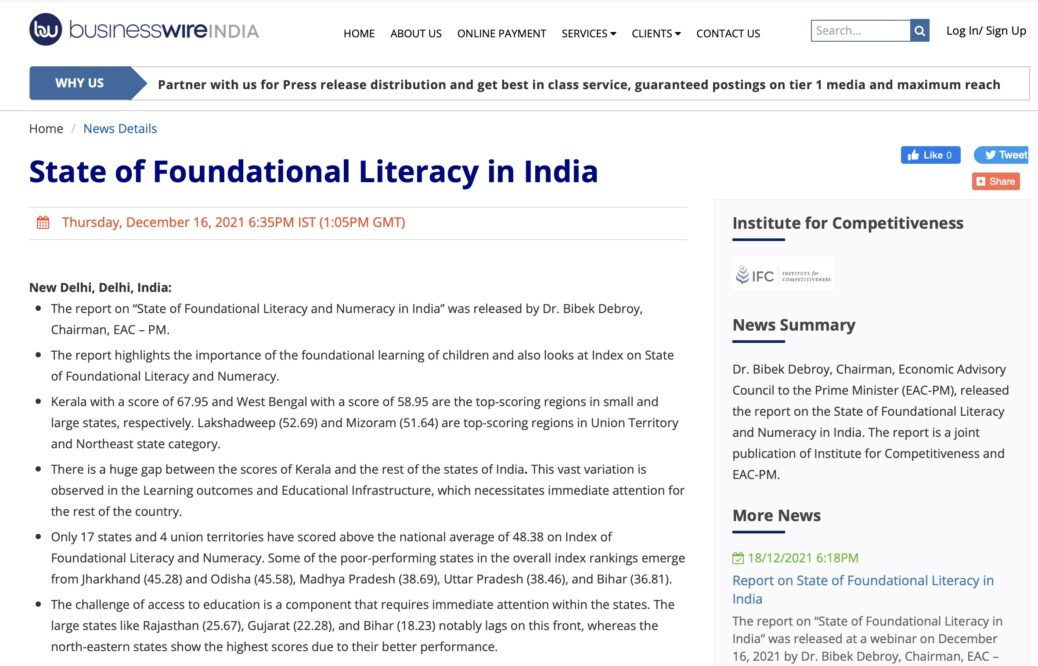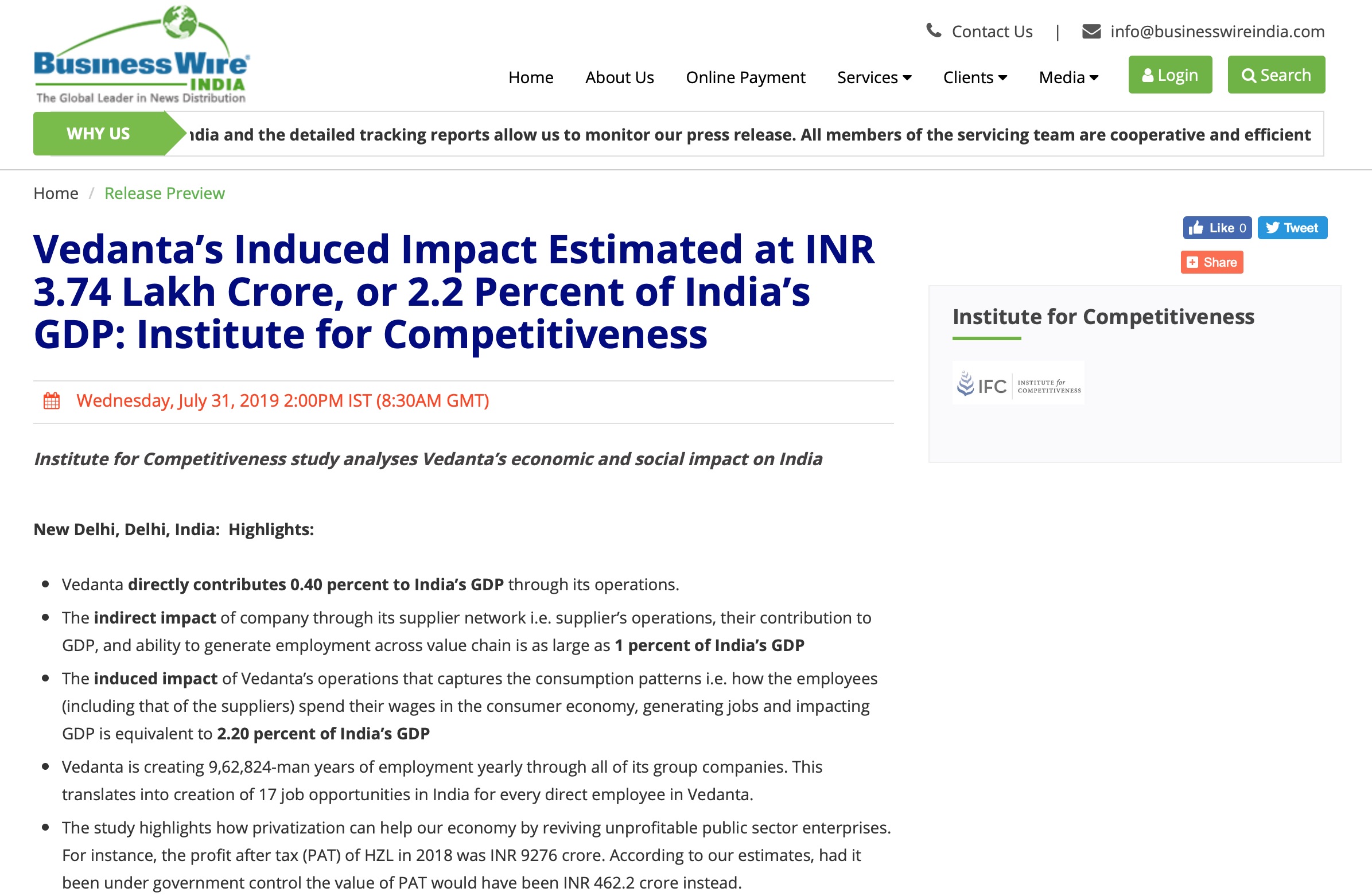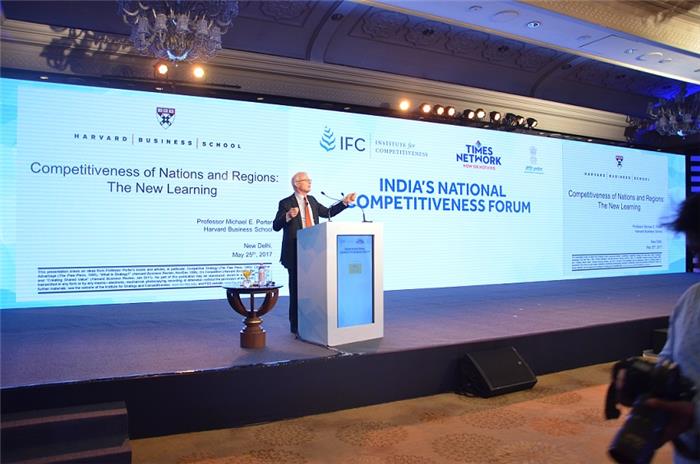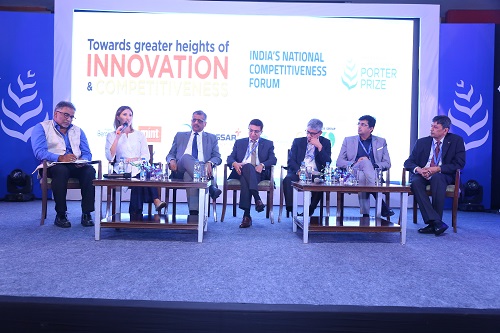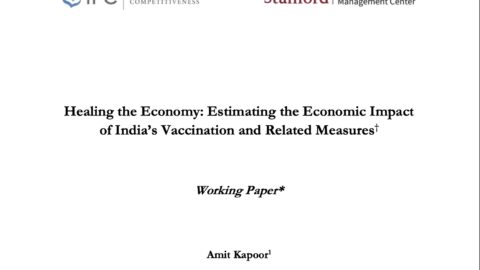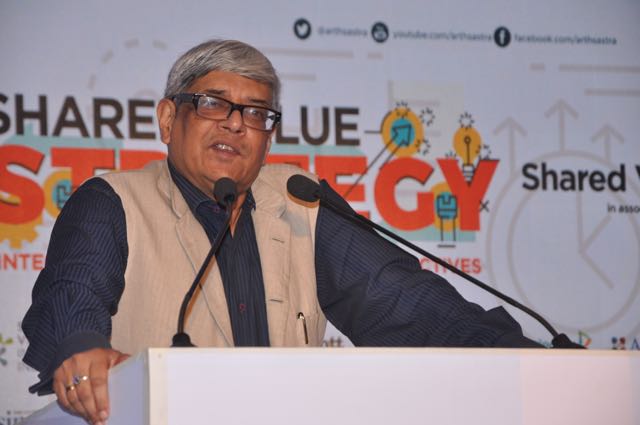Press Release
The Press Release was released on Business Wire India on December 16, 2021 and can be assessed at https://www.businesswireindia.com/state-of-foundational-literacy-in-india-76526.html
State of Foundational Literacy in India
New Delhi, Delhi, India:
Highlights
- The report on “State of Foundational Literacy and Numeracy in India” was released by Dr. Bibek Debroy, Chairman, EAC – PM
- The report highlights the importance of the foundational learning of children and also looks at Index on State of Foundational Literacy and Numeracy
- Kerala with a score of 67.95 and West Bengal with a score of 58.95 are the top-scoring regions in Small and Large states, respectively. Lakshadweep (52.69) and Mizoram (51.64) are top-scoring regions in Union Territory and Northeast state category.
- There is a huge gap between scores of Kerala and the rest of the states of India. This vast variation is observed in the Learning outcomes and Educational Infrastructure, which necessitates immediate attention for the rest of the country.
- Only 17 states and 4 union territories have scored above the national average of 48.38 on Index of Foundational Literacy and Numeracy. Some of the poor-performing states in the overall index rankings emerge from Jharkhand (45.28) and Odisha (45.58), Madhya Pradesh (38.69), Uttar Pradesh (38.46) and Bihar (36.81).
- The challenge of access to education is a component that requires immediate attention within the states. The large states like Rajasthan (25.67), Gujarat (22.28) and Bihar (18.23) notably lags on this front, whereas the north-eastern states show the highest scores due to their better performance.
Dr Bibek Debroy, Chairman, Economic Advisory Council to the Prime Minister (EAC-PM), released the report on the State of Foundational Literacy and Numeracy in India. The report is a joint publication of Institute for Competitiveness and EAC-PM. The report highlights the importance of the foundational learning years in the overall development of a child and further emphasizes on the role of well-planned early interventions like the National Education Policy (2020) and the NIPUN Bharat guidelines, leading to long-term improved learning outcomes.
Foundational Literacy and Numeracy (FLN) refers to basic reading, writing, and mathematics skills that a child needs to develop in early years. Falling behind in the Foundational Learning years which encompass of pre-school and elementary education makes children more vulnerable as it negatively impacts their learning outcomes. The ongoing COVID-19 pandemic has further added to these existing issues pertaining to foundational learning years. Therefore, the focus on the foundational learning is the need of the hour to ensure universal access to quality education for all children in pre-primary and primary classes in India.
The framework for the State of Foundational Literacy and Numeracy in India encompasses five pillars with 41 indicators. The five pillars include Educational Infrastructure, Access to Education, Basic Health, Learning Outcomes and Governance. The Index derived at using statistical method presents a comprehensive evidence-backed view of factors driving India’s low learning outcomes in early grades and outlines pathways for improvement. While the index looks to give state rankings basis on the above parameters, yet it is not all encompassing due to practical challenges related to data availability at the state and national level. Since preschool forms an important phase in the early foundational learning years, it could not be included in the index due to the scarcity of reliable data.
The Index has relied on the latest NAS learning scores and ASER data related to Digital Education for analysis; however, they should be used with caution to construct learning profiles or assess learning outcomes while comparing states and districts. This limitation has been recognized in the report. It has been recommended that we look at newer ways of collecting appropriate data to measure the learning outcomes and ensure data-driven policy for maximized impact. In addition to appropriate data related to evaluation, monitoring data would need to be embedded within the system. This requires a comprehensive education management information system that includes well-defined administrative and pedagogical indicators.
The report was released at the webinar organised on December 16, 2021. The webinar focussed on discussions pertaining to foundational learning and numeracy in India, the importance of early education and how it shapes the overall development of a child, especially during the initial 3 years of pre-schooling and two years of 1st and 2nd grade.
In his keynote at the webinar, Dr. Bibek Debroy, Chairman, EAC-PM, stated that “One needs to build a bridge between literacy and skill development to make foundational learning and numeracy in India a success. Dr Debroy suggested that the report should expand its scope and be made comprehensive by including case studies, as the issue of foundational learning goes beyond statistics. He also stressed that we would need to disaggregate the data across all age groups in both rural and urban area, and then look at learning outcomes. He urged that we should deepen the narrative on the various challenges mentioned in the report like child labour, mid-day meal scheme and the issues of digital divide.”
This was followed by panel discussion with experts in the field of education like Dr. Sonali Nag, Professor of Psychology and Education, University of Oxford; Dr. Nidhi Vinayak, Early Literacy and Language Specialist and Ashish Jhalani, President (International Markets), Square Panda.
Dr Sonali Nag, Professor of Psychology and Education, University of Oxford, UK said “Multi linguality is natural for a child. We need to listen to a child’s voice and ensure flexibility in curriculum to allow for contextualization at the ground level” Prof. Suniti Sanwal, Head, Department of Elementary Education, NCERT stated “Teacher training methods and practices along with parents involvement in the children learning is crucial for the future and for the overall development of the education system. We are working towards developing a bridge course from pre-school till class 8 under Right to Education to help children recover from learning gaps due to ongoing pandemic.”
Dr Nidhi Vinayak, Early Literacy and Language Specialist remarked “Education and Technology should go hand in hand. Imparting of education should be balanced. Reading, writing and thinking beyond the text material provided will make the child grow more and create thinking readers.” Ashish Jhalani, President (International Markets), Square Panda said “Right education, accessibility to resources, teacher-child relationship and lastly educational infrastructure especially in rural areas are the key areas which our country needs to focus on. Expansion of technology in education will not replace teachers but enhance the solutions for children in the existing education system.”
The complete report can be downloaded from the link https://www.competitiveness.in/wp-content/uploads/2021/12/Report_on_state_of_foundational_learning_and_numeracy_web_version.pdf
Foundational Learning Scores and Its Outcomes
Category Wise Ranking – Index on Foundational Literacy and Numeracy
| Large States | Score | Rank |
| West Bengal | 58.95 | 1 |
| Tamil Nadu | 55.49 | 2 |
| Maharashtra | 53.11 | 3 |
| Karnataka | 50.16 | 4 |
| Gujarat | 49.84 | 5 |
| Rajasthan | 47.02 | 6 |
| Madhya Pradesh | 38.69 | 7 |
| Uttar Pradesh | 38.46 | 8 |
| Bihar | 36.81 | 9 |
| Small States | Score | Rank |
| Kerala | 67.95 | 1 |
| Himachal Pradesh | 57.36 | 2 |
| Punjab | 56.19 | 3 |
| Uttarakhand | 55.60 | 4 |
| Haryana | 52.59 | 5 |
| Goa | 51.41 | 6 |
| Chhattisgarh | 50.47 | 7 |
| Andhra Pradesh | 49.85 | 8 |
| Telangana | 46.02 | 9 |
| Odisha | 45.58 | 10 |
| Jharkhand | 45,28 | 11 |
| Union Territories | Score | Rank |
| Lakshadweep | 52.69 | 1 |
| Delhi | 50.74 | 2 |
| Puducherry | 50.08 | 3 |
| Chandigarh | 49.89 | 4 |
| Jammu and Kashmir | 49.16 | 5 |
| Andaman and Nicobar Island | 47.04 | 6 |
| Dadar and Nagar Havelli | 46.83 | 7 |
| Daman and Dui | 43.30 | 8 |
| Ladakh | 35.21 | 9 |
| North-Eastern States | Score | Rank |
| Mizoram | 51.64 | 1 |
| Sikkim | 51.14 | 2 |
| Manipur | 50.95 | 3 |
| Assam | 46.55 | 4 |
| Nagaland | 42.47 | 5 |
| Meghalaya | 41.37 | 6 |
| Tripura | 37.18 | 7 |
| Arunachal Pradesh | 36.88 | 8 |

